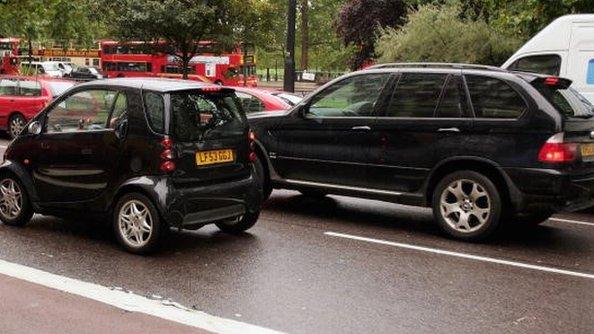Row over 'pointless' new London congestion charge
- Published
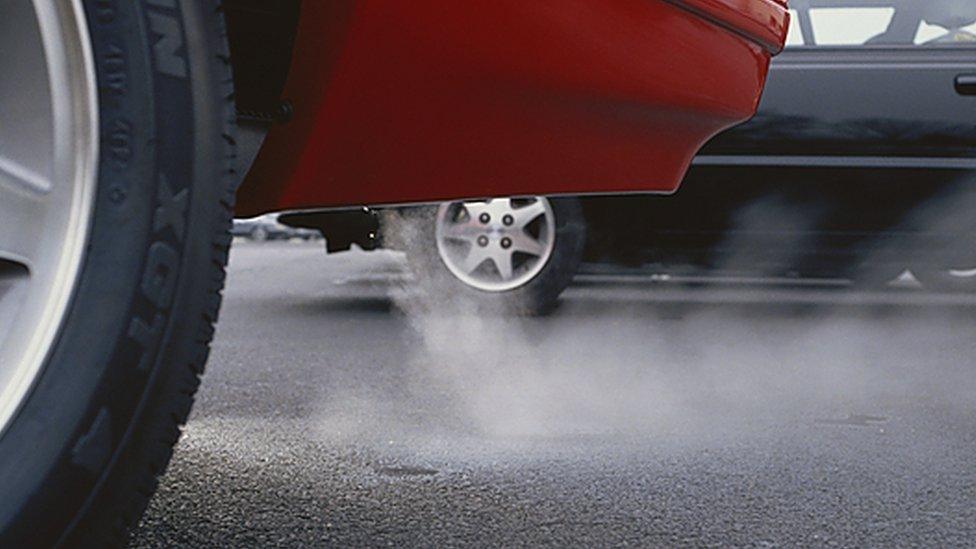
The so-called T-charge will see the owners of older, more polluting cars face an extra £10 fee for entering the congestion charge zone
London Mayor Sadiq Khan has become embroiled in a political row over his proposals for an additional congestion charge for the capital's dirtiest cars.
The so-called T-charge will see the owners of older, more polluting cars face an extra £10 fee for entering the congestion charge zone.
However, critics called it "pointless" and said it would have little effect.
Mr Khan said his critics had consistently opposed efforts to improve air quality.
Conservative London Assembly environment spokesman, Shaun Bailey, said Transport for London's (TfL) consultation on the T-charge, external showed the charge would have a negligible effect on air pollution in the city.
TfL's assessment said: "As this scheme affects just 7% of vehicles entering the Congestion Charge zone, the anticipated reduction in air pollution is low and it was felt that air quality concentration modelling would not produce any significant results."
It added the scheme was still considered to be an important part of a transition towards the introduction of an expanded ultra low emission zone in the capital, which it is believed would have much greater impact on air quality.
London's ultra low emission zone, which currently surrounds central London, would be extended to the north and south circular roads by 2020, under the mayor's proposals.
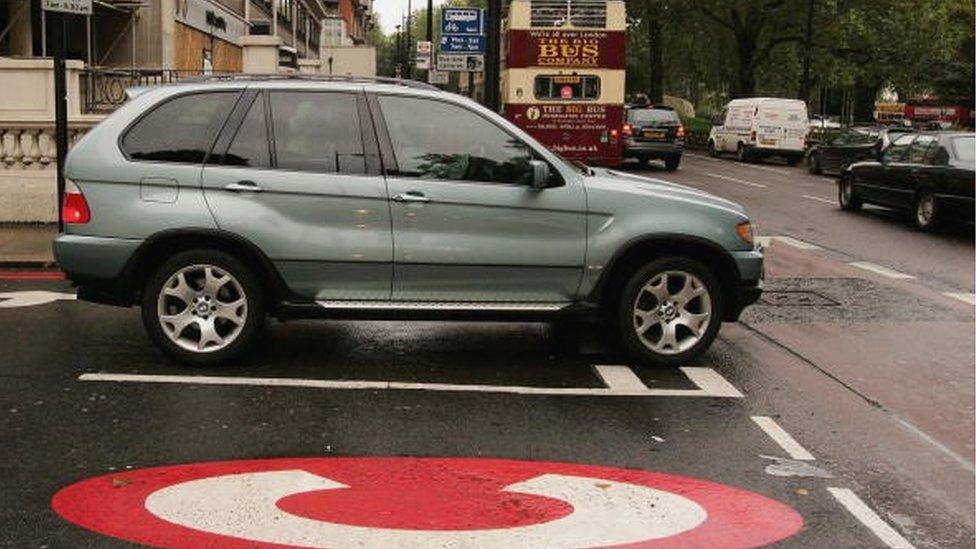
Conservative London Assembly environment spokesman, Shaun Bailey, said up to 9,000 drivers a day could be hit with the additional charge
Mr Bailey claimed up to 9,000 drivers a day could be hit with the additional charge netting City Hall an estimated £23m a year.
"Under assessment by his own people, the mayor's flagship air pollution policy is predicted to have only a 'negligible' impact on air quality, reducing poisonous NOx gasses by just 1-3%," he added.
Mr Bailey added the charge would inflict "crippling additional costs on small businesses" as well as causing "expense, disruption and bureaucracy for London residents."
However, Mr Khan hit back saying the Conservatives should be "thoroughly ashamed of themselves" for opposing his plans to tackle air pollution, which he said had the support of a range of experts.
City Hall also suggested the £23m figure was highly misleading as it assumed no change in the behaviour of drivers after the T-charge was introduced.
Simon Birkett, founder and director of Clean Air in London, external, said: "It's disappointing that anyone is campaigning against action on diesel less than a week after London breached the legal limit for hourly exposure to nitrogen dioxide for a whole year in five days. "
- Published1 December 2016
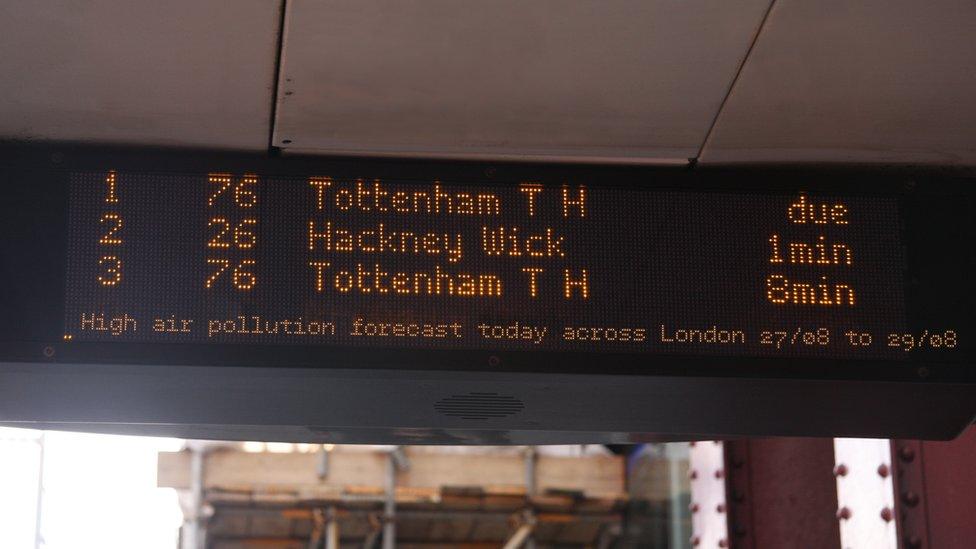
- Published5 August 2016
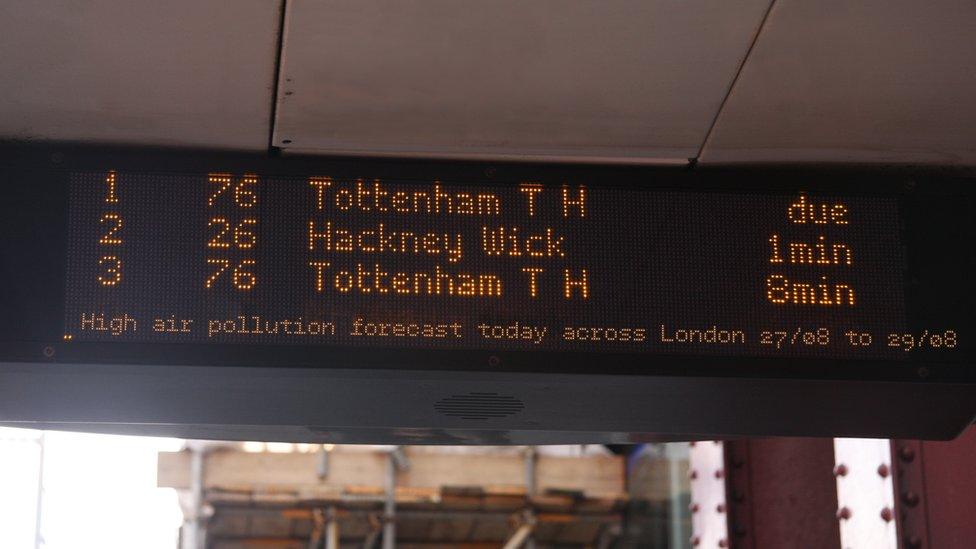
- Published10 October 2016
